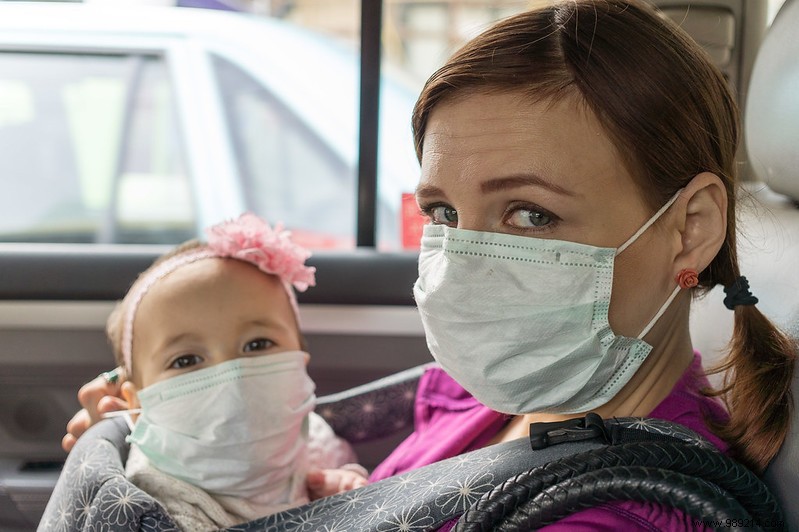US researchers conducted an experiment on wearing a mask. However, the results show that wearing a mask has no effect on oxygen and carbon dioxide exchanges in the body.
The main arguments of anti-mask people concern the risk of hypoxia (lack of oxygen) and the risk of carbon dioxide poisoning. Let us also mention another argument at the level of the meshes of the masks. These would be too large and allow SARS-CoV-2 to pass through. Obviously, these arguments are not valid and experts have already spoken on the issue in July 2020. Nevertheless, researchers from the University of Miami School of Medicine (USA) have made a point of carrying out their own experience . This was published in the Annals of the American Thoracic Society on October 2, 2020.
The scientists brought together about thirty people then divided them into two groups. The first group, with an average age of 31, consisted of healthy hospital medical staff. The second group, with an average age of 71, included volunteers suffering from chronic obstructive pulmonary disease (COPD).

The objective of the experiment? Measure several parameters such as heart rate, respiratory rate, oxygen saturation, end-tidal carbon dioxide, and oxygen pressure. Another example is carbon dioxide pressure in the case of severe lung disease. The study directors performed these measurements at different times :without mask at the start of the experiment, after five minutes of wearing a mask at rest and after thirty minutes of wearing a mask at rest. An analysis also took place after a walk test for six minutes (only for the COPD group) after wearing the mask for 30 minutes.
According to the results, the researchers indicate that the heart rate suffers a slight impact in healthy people. This may explain the neurological reactions or the amplification of anxiety phenomena (or claustrophobia). In the case of people with COPD, we have a slight decrease in oxygenation flow after the walk test. However, no major physiological changes was observed in gas exchange measurements.
The researchers therefore believe that surgical masks do not cause any problems in gas exchange. This is not the case with FFP2 masks, which can generate a slight accumulation of carbon dioxide in the lungs. However, previous studies on the subject have not shown significant physiological damage.